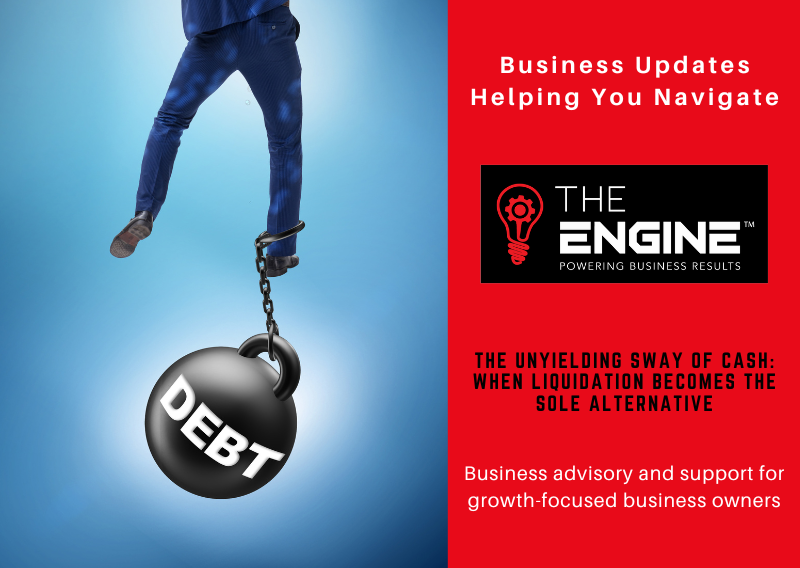The Unyielding Sway of Cash: When Liquidation Becomes the Sole Alternative
We dropped the final curtain of filing for liquidation proceedings in the High Court this week assisting a client that had waited nearly 18 months for funds from a debtor in excess of $300k. They had worked with us 4 years ago and said they regretted leaving our expertise. This business owner was extremely stressed and broken. They asked us to facilitate an attempt to recover. From the outset we said this was never going to be easy given the attitude of the debtor and the endless broken promises.
In the unpredictable landscape of business, the adage “cash is king” resonates with a resounding truth. For companies navigating financial turmoil, maintaining a robust cash flow can often mean the difference between survival and insolvency. When a company finds itself in a precarious position, owed money by another struggling entity, there comes a time when the only alternative is to shake the tree and opt for liquidation. This decision, although fraught with uncertainty, is driven by the imperative to salvage whatever value remains and mitigate further losses. The harsh reality is that not every debtor can fulfill their financial obligations, and as creditors, the decision to liquidate becomes a strategic move to safeguard one’s interests. It is a last resort born out of a pragmatic understanding that clinging to hopes of recovery may lead to deeper financial entanglements. By initiating the liquidation process, the creditor takes control of the situation, actively participating in the disbursement of remaining assets to recover as much debt as possible.
Inaction is often the riskiest course of action. A paralysed approach could result in a prolonged battle for repayment, draining both time and resources. By opting for liquidation, the creditor seizes the initiative and accelerates the resolution process. While it may seem counterintuitive to accept the possibility of receiving nothing, this decisive step ensures a definitive conclusion to the debt recovery saga. The decision to liquidate is a calculated one, acknowledging the delicate balance between risk and reward. The debtor’s financial instability may render traditional avenues, such as restructuring or negotiation, ineffective. In such cases, liquidation becomes the pragmatic choice, offering closure and the chance to allocate resources more efficiently. It becomes a testament to the uncompromising nature of the business world, where tough decisions are sometimes the only path to financial equilibrium.
In conclusion, the mantra “cash is king” reverberates through the corridors of financial strategy, especially when dealing with a debtor on the brink. While opting for liquidation might seem like a drastic measure, it serves as a lifeline for creditors navigating treacherous waters. In the unpredictable dance of commerce, sometimes the only alternative is to shake the tree, accept the harsh reality, and move forward, even if it means braving the uncertainty of receiving nothing at all. You don’t need to navigate Debtor Management on your own.
Navigate by clicking on the far right or left of the pages below.
– Catherine Cooke
Founder and Leading Business Advisor

